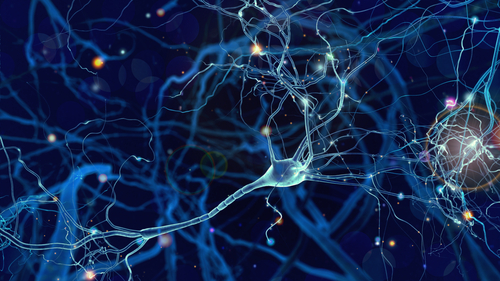Changes in Innate Immunity, Cell Waste Disposal Process Linked to Loss of Dopaminergic Neurons in Early Study

Together with aging, the disruption of a cell’s waste disposal system and exaggerated immune responses can lead to the progressive loss of dopamine-producing neurons seen in diseases like Parkinson’s, according to new research in fruit flies.
The study, “Hyperactive Innate Immunity Causes Degeneration of Dopamine Neurons upon Altering Activity of Cdk5,” was published in the journal Cell Reports.
Immune responses in the brain may be triggered by pathogens (like microbes) and by its links to autophagy — a cellular process that uses organelles called lysosomes to clear waste products and toxic elements (like protein clumps), serving as the cell’s waste disposal system.
Autophagy is also an alternative route for cell death, and it is implicated in a variety of neurodegenerative diseases. However, whether autophagy favors cell survival or death — and whether it is an early triggering event in neurodegeneration or a “late-acting piece” of the mechanism — remains to be understood.
Aging, the greatest risk factor for most neurodegenerative diseases, impacts immunity and autophagy. But it is not yet known if changes in these processes due to aging have a direct role in neurodegeneration, or simply reflect “a correlation among the processes of normal aging,” the study notes.
Researchers at the National Institutes of Health (NIH) used fruit flies, whose autophagy and innate immunity have significant similarities to those of mammals, to study why immunity is altered during neurodegeneration and whether immune system changes are a cause or a consequence of neuronal dysfunction.
The Parkinson’s Disease News Today forums are a place to connect with other patients, share tips and talk about the latest research. Join today!
A hyperactive innate immune response has been suggested to impact neurodegeneration and aging in fruit flies. However, some studies found that anti-microbial peptides (AMPs) — small molecules that are part of the innate immune response — may benefit the aging process. These small molecules also have potent antibiotic activity that can kill bacteria, virus, fungi, or cancer cells.
Altered activity of an enzyme called Cdk5 causes changes in fruit flies that highly resemble neurodegeneration in humans, including the loss of neurons linked to learning and memory, disrupted autophagy, sensitivity to oxidative stress, progressive motor dysfunction, and accelerated aging. Preclinical studies have suggested Cdk5 is important for early brain development and may be associated with diseases like Parkinson’s, amyotrophic lateral sclerosis, and Alzheimer’s.
In this study, researchers found that increasing or decreasing the expression of the activating subunit of Cdk5, called Cdk5-alpha, severely disrupted autophagy. Changes it effected were sufficient to trigger an immune system attack on dopamine-producing neurons — whose loss is a hallmark of Parkinson’s — in the animals. Neuronal death was particularly evident in older flies.
Subsequently, the team found that autophagy disruption caused a hyperactive innate immune response, as shown by increased expression of AMPs. This effect was independent of aging and suggested that “AMP overexpression likely plays a central role in the Cdk5α-associated loss of [dopamine-producing] neurons,” the researchers wrote.
Hyperactivation of the immune system was responsible for the age-dependent death of dopamine-producing neurons. Genetically blocking immune responses — either by reducing the expression of a transcription factor called Rel, or by restoring autophagy by increasing a transcription factor known as Mitf, a key regulator of lysosomal function — prevented the loss of these neurons. (Transcription factors are tiny proteins that regulate protein production.)
“These data reveal a simple, linear, dependent genetic pathway, encompassing both autophagy and innate immunity, which, while rigorously separable from aging, interacts with the effects of aging to lead to the degeneration of [dopamine-producing] neurons,” the scientists wrote.
The similarity of “genes, pathways, and cellular phenotypes” between flies and humans make it “very likely” that the processes revealed in this study “also play a central role in the development and progression of human [neurodegenerative disorders],” they concluded.






